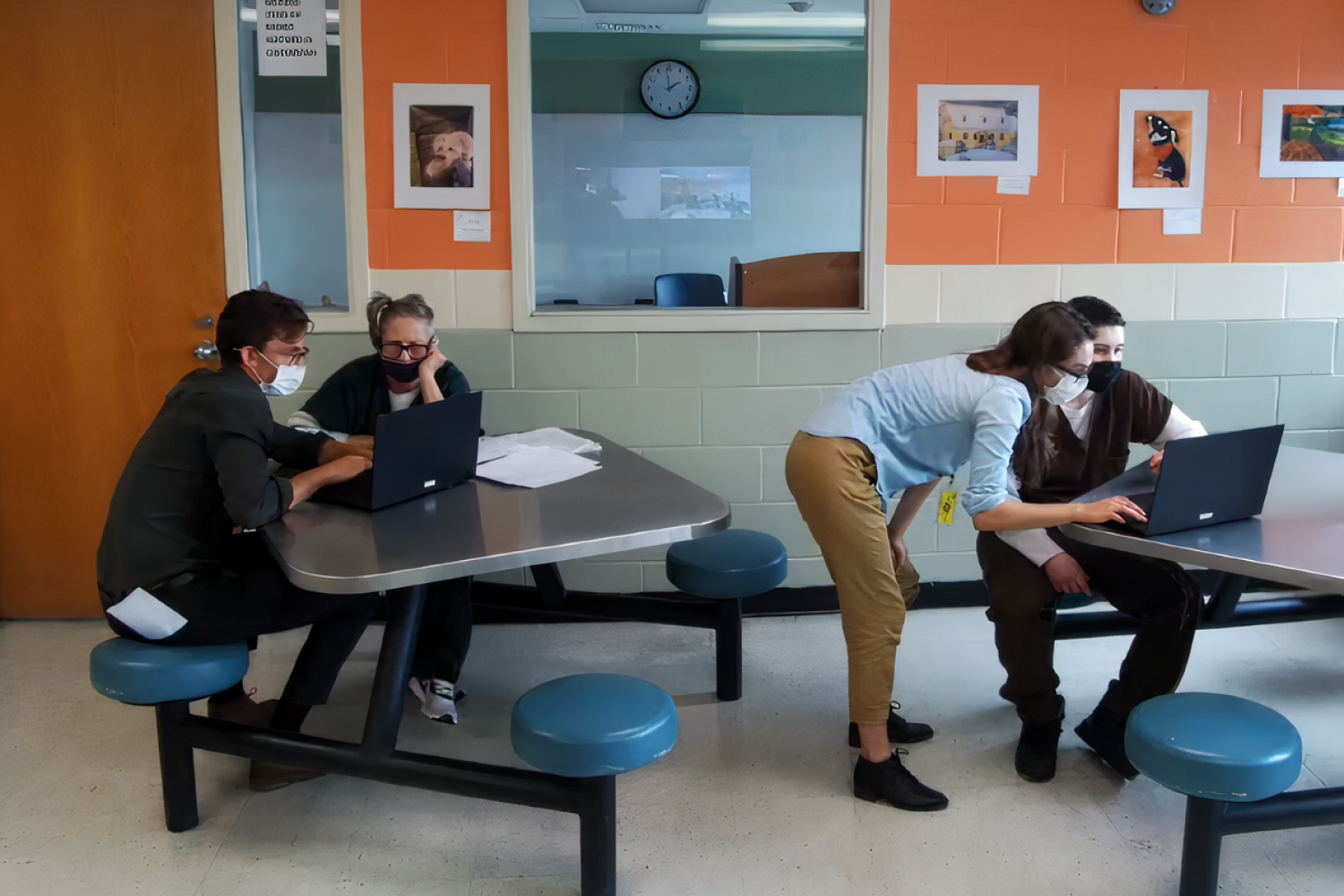
A commission co-led by The Educational Justice Institute at MIT has crafted a groundbreaking blueprint for the future of higher education in New England prisons.
Office of the Vice Chancellor
Since its inception in 2018, The Educational Justice Institute (TEJI) has been a trailblazer in implementing innovative and transformative educational experiences for incarcerated students as well as students at universities, including MIT. Now, TEJI has played a formative role in efforts to expand access to higher education in New England prisons through a partnership with the New England Board of Higher Education.
That partnership resulted in the formation of the New England Commission on the Future of Higher Education in Prison in October 2022, with the goal of “working to ensure that every incarcerated person in New England has access to high-quality, workforce-aligned, equitable post-secondary opportunities with a wide range of educational pathways.”
The commission, which is the largest one of its kind and the only one focused on a geographical region, includes over 80 stakeholders from higher education, workforce development, corrections, reentry, and government from all six New England states. In addition, 20 percent of the members have lived experience in prison education programs. The commission’s final report, Partnerships for Progress in New England: A Student-Centered Approach to Higher Education in Prison, was released this summer.
The report cites recent studies and statistics on the societal and personal benefits of prison education programs. For example, those who have access to educational programming in prison are up to 43 percent less likely to recidivate. Other benefits include enhancing participants’ sense of purpose, self-efficacy, and dignity; increasing employability upon reentry into society; positively impacting overall prison culture; and disrupting intergenerational cycles related to incarceration and obtaining an education.
The commission’s work is also timely. As of July 1, as part of a spending bill Congress passed in 2020, incarcerated people are eligible for the Federal Pell Grant Program, which provides need-based funding to low-income undergraduates. This represents a reversal of a ban on Pell Grants for incarcerated students that had been in place for 29 years. Because the funding goes directly to educational institutions, the bill could help colleges and universities expand prison education programs, including offering college credit and degrees.
Incarcerated people face a number of barriers to education that the report seeks to address. Correctional facilities may lack appropriate space to hold classes for students or quiet areas to study. Lack of access to technology precludes students from using computers to take online classes or complete assignments. Teachers and volunteers must receive security clearances and educational materials need to be reviewed by corrections administrators. And if students are reclassified (and moved from one facility to another), they may be unable to continue their educational progress.
“Re-imagining incarceration must include a more humanized approach to planning for reentry, and the educational offerings at each facility, both post-secondary and career and technical, must be more widely adopted and initiated sooner,” says Carol Cafferty, co-director of TEJI.
The report includes 15 recommendations, both prison-based and community-based, and actions that institutions, states, and others can advocate for and put into practice. These include:
- conducting assessments of prison facilities to make better use of physical space, resources, staff, and infrastructure for educational programs;
- expanding and integrating technology to help prepare students to reenter an increasingly digital and technology-driven society and workplace;
- hiring education and career navigators to guide students, both while they are incarcerated and after they are released;
- establishing voluntary credit transfer agreements among higher education institutions that guarantee acceptance of academic credits students earned before and during incarceration to improve their ability to continue their education upon release; and
- coordinating a voluntary collaborative among all of facilities in New England to expand the range of educational offerings, using remote synchronous learning and other tools to reach more students.
“We are seeking to change the conversation in higher education to become more inclusive of the prospective student population in prison,” says Lee Perlman, TEJI co-director and co-leader of the commission. “This is another group of students who need what higher education can offer and we must work across systems to deliver it.”
